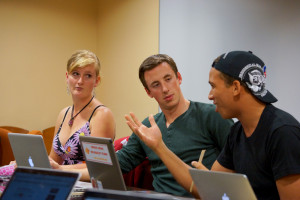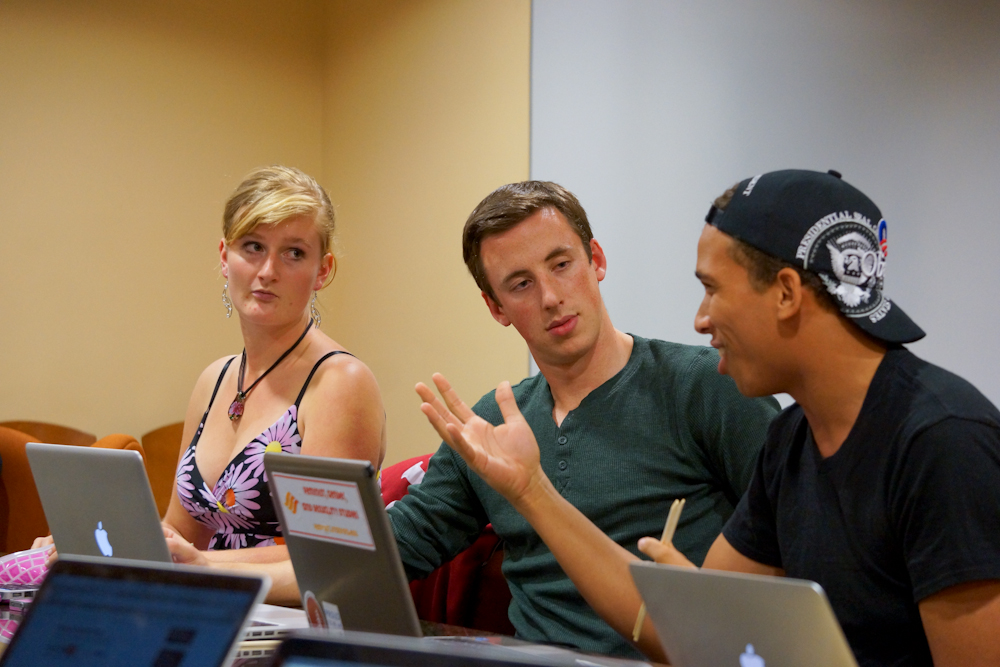
The 15th Undergraduate Senate debated how to best implement a constitutional amendment, passed last election, that mandates top-voted upperclassmen candidates to be automatically elected to the Senate, no matter their finish among the rest of the candidate pool.
The amendment, which passed with strong student support, also gives the Senate the power to determine the number of upperclassmen candidates elected under this provision.
While there was no bill up for discussion pertaining to this issue, Senator John-Lancaster Finley ’16 noted that the Administration and Rules Committee had preliminary discussions in their previous meetings.
“I think it is important [to get upperclassmen to run],” Senate Chair Ben Holston ’15 said. “[The Undergraduate Senate] is supposed to be a body that represents the entire student body and having 14 sophomores and one junior doesn’t necessarily do that.”
The Senate tossed around many ideas as to how to best implement the amendment, including having the upperclassmen candidates receive a minimum percentage of votes in order to be eligible for the Senate election.
Several senators noted that it could be difficult to recruit upperclassmen to run, citing the Senate’s restriction on travelling abroad and lack of course credit available.
Holston said the Senate hopes to have a bill passed that deals with the constitutional amendment by the end of January at the latest.
In addition to the debate about the amendment, Senator Ilya Mouzykantskii ’16 reported on the establishment of his new project, the Stanford Connections Program that uses money recently allocated to senators by the newly created Senate Innovation Fund. Mouzykantskii did not clarify what the project’s goals would be.
“I want to incentivize and encourage students to spend time improving the lives of people around them,” Mouzykantskii said. “I want to optimize how students connect on campus.”
Senator Hisham Al-Falih ’16 also followed up on the plans he outlined last week for a new peer-mentoring program.
“We don’t want to overstep any current student groups’ efforts…so we are trying to see if there are any relevant student groups that are doing things very similar to this and try to collaborate with them,” Falih said.
While the initial plan for the peer-mentoring program emphasized minority students as the main recipients of this mentoring, Falih has decided to potentially expand the program.
“We are not only going to try to make this community based, but also major based, dorm based, ethnicity based so it is going to be a lot of diversity within the program,” Falih said.
The Senate also passed a bill amending its internal rules of order, in addition to $21,922.65 of funding bills.
Contact Andrew Vogeley at avogeley ‘at’ stanford.edu.
